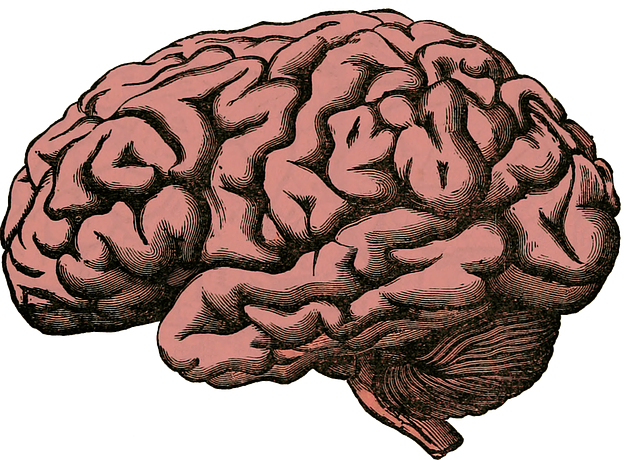Mental health policies significantly impact access to essential services for individuals with Attention Deficit Disorder (ADD) and Attention Deficit Hyperactivity Disorder (ADHD), influencing therapy availability and quality. Effective policies address barriers such as limited insurance coverage, geographical disparities, and neurodivergent stigma by integrating evidence-based practices and fostering collaboration between healthcare providers and insurers. While awareness about early intervention and specialized care has grown, gaps remain in delivering these services to underserved communities. A strategic approach combining systemic barrier addressing, cultural sensitivity, and digital therapy integration is needed to advocate for accessible and affordable therapy for ADD-ADHD, ultimately improving mental health policies and patient outcomes.
Mental health policy plays a pivotal role in shaping the accessibility and quality of care, particularly for conditions like Attention Deficit Disorder (ADD) and Attention Deficit Hyperactivity Disorder (ADHD). This article delves into the intricate relationship between mental health policy and the availability of effective therapy for ADD-ADHD. We analyze current advocacy efforts, their impact on healthcare access, and identify strategies to further promote comprehensive mental health services tailored for individuals with these neurodiverse conditions.
- Understanding Mental Health Policy and Its Impact on ADD-ADHD Therapy Availability
- Analyzing the Effectiveness of Current Advocacy Efforts for Better Healthcare Access
- Strategies to Advocate for Comprehensive Mental Health Services and ADD-ADHD Support
Understanding Mental Health Policy and Its Impact on ADD-ADHD Therapy Availability

Mental health policies play a pivotal role in shaping access to essential services for individuals with Attention Deficit Disorder (ADD) and Attention Deficit Hyperactivity Disorder (ADHD). These policies dictate funding allocation, service delivery models, and regulatory frameworks that influence the availability and quality of therapy for ADD-ADHD. Understanding these policy nuances is crucial for advocates and practitioners aiming to improve therapeutic outcomes.
Effective mental health policy should address barriers to care, such as limited insurance coverage for specialized therapies, geographical disparities in service provision, and stigma surrounding neurodivergent conditions. Integrating evidence-based practices, like Cognitive Behavioral Therapy (CBT) and Mindfulness-Based Interventions, into routine clinical settings can enhance accessibility. Moreover, initiatives like Mental Wellness Coaching Programs Development, Community Outreach Program Implementation, and conflict resolution techniques between insurance providers and healthcare providers can foster collaboration, improve service coordination, and ultimately increase the availability of tailored therapy for ADD-ADHD.
Analyzing the Effectiveness of Current Advocacy Efforts for Better Healthcare Access

The current advocacy landscape for mental health, particularly focusing on therapy for ADD-ADHD, presents a mixed picture of success and areas in need of improvement. Existing efforts have successfully raised awareness about the importance of early intervention and access to specialized care. However, an in-depth analysis reveals gaps in ensuring these services reach underserved communities effectively. Many advocacy groups have been instrumental in promoting self-awareness exercises and trauma support services as integral components of mental well-being.
Moreover, emphasizing emotional intelligence as a key factor in both personal and collective resilience has gained traction. Yet, challenges remain in translating these awareness campaigns into tangible improvements in healthcare access. To enhance advocacy efforts, a strategic approach is required to address systemic barriers, ensure cultural sensitivity, and integrate innovative practices such as digital therapy options. By doing so, advocates can drive meaningful change, making quality mental health support, including therapy for ADD-ADHD, more accessible to all.
Strategies to Advocate for Comprehensive Mental Health Services and ADD-ADHD Support

Advocating for comprehensive mental health services requires a multifaceted approach, especially when addressing specific conditions like ADD-ADHD. One effective strategy is to raise awareness among policymakers and the general public about the unique challenges faced by individuals with ADD-ADHD. This includes promoting the need for accessible and affordable therapy for ADD-ADHD, ensuring it is recognized as a legitimate mental health concern on par with other disorders. Public campaigns, educational workshops, and collaborative efforts with mental health organizations can help dispel myths and foster understanding.
Furthermore, advocating for robust healthcare provider cultural competency training is essential. This equips professionals to recognize and address the specific needs of ADD-ADHD patients within diverse communities. Incorporating compassion cultivation practices in therapy sessions has also shown promise in improving patient outcomes. By integrating these strategies, policymakers can develop inclusive mental health policies that effectively support individuals with ADD-ADHD and other similar conditions.
Mental health policy plays a pivotal role in shaping the accessibility of therapy for ADD-ADHD, emphasizing the need for comprehensive advocacy. By analyzing current efforts and strategies, we can identify gaps and enhance our approach to ensure better healthcare access. It is imperative to continue pushing for policies that prioritize mental well-being, specifically catering to the unique needs of individuals with ADD-ADHD. Through collective action and a holistic policy framework, we can create a more inclusive and supportive environment, ultimately improving therapy availability and outcomes.














